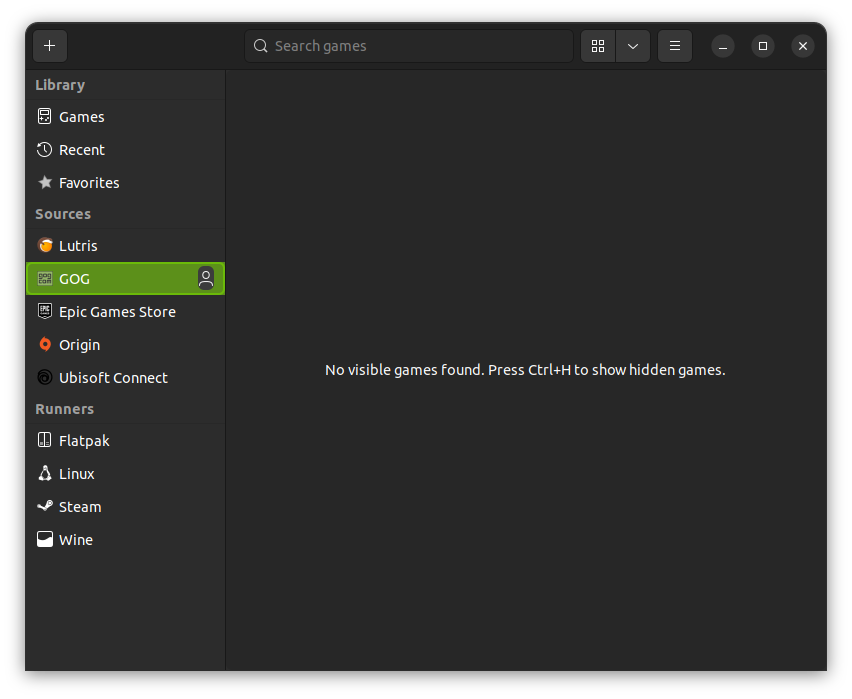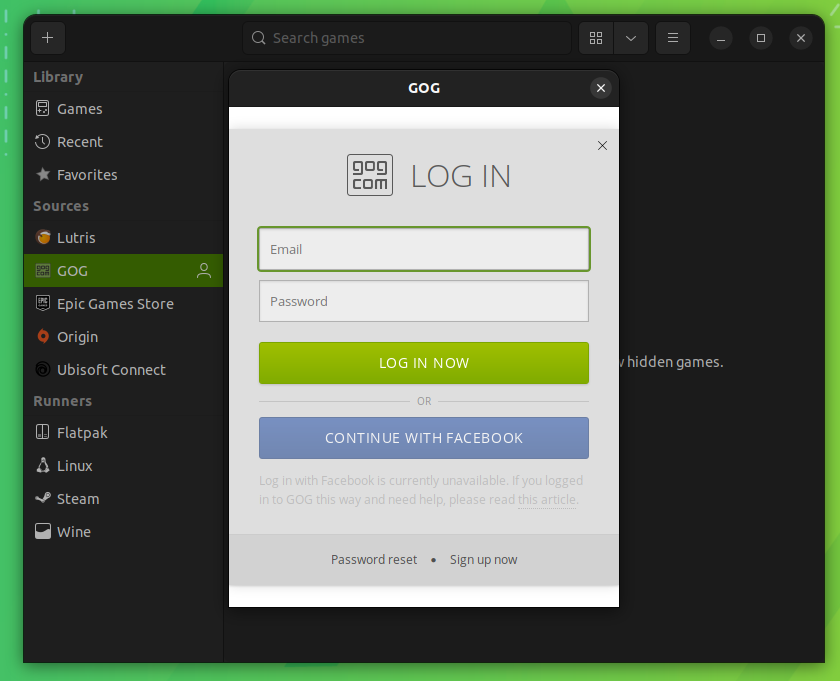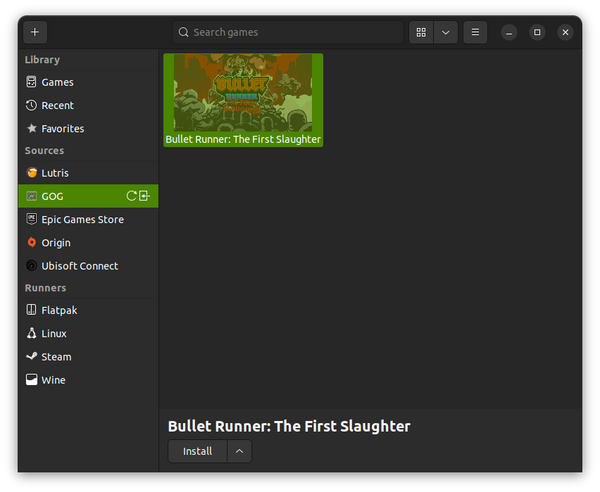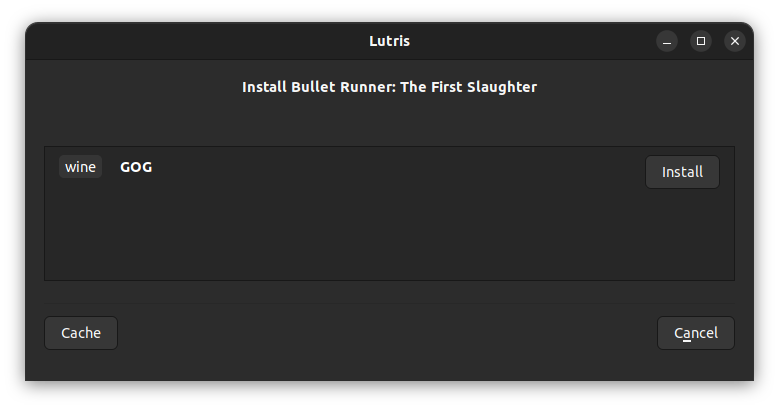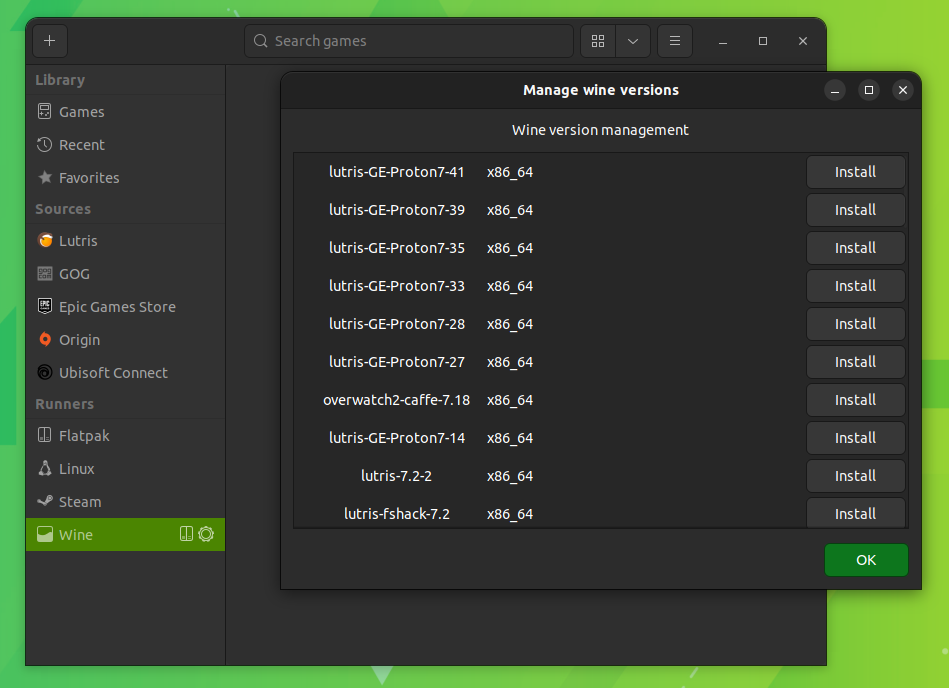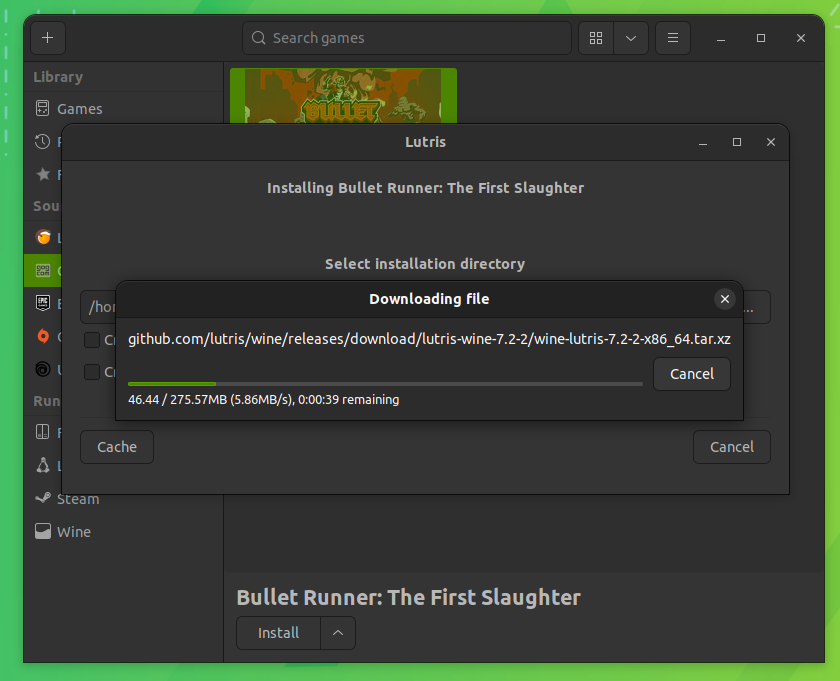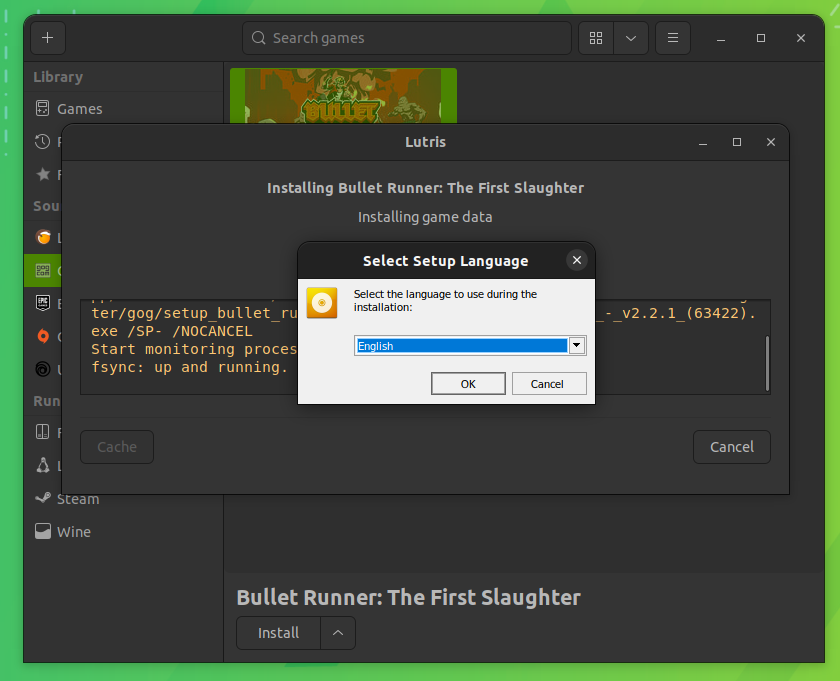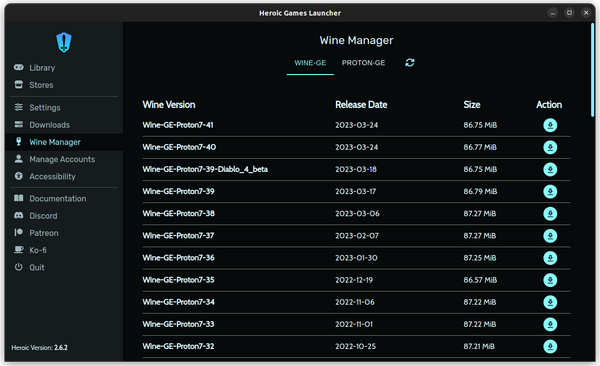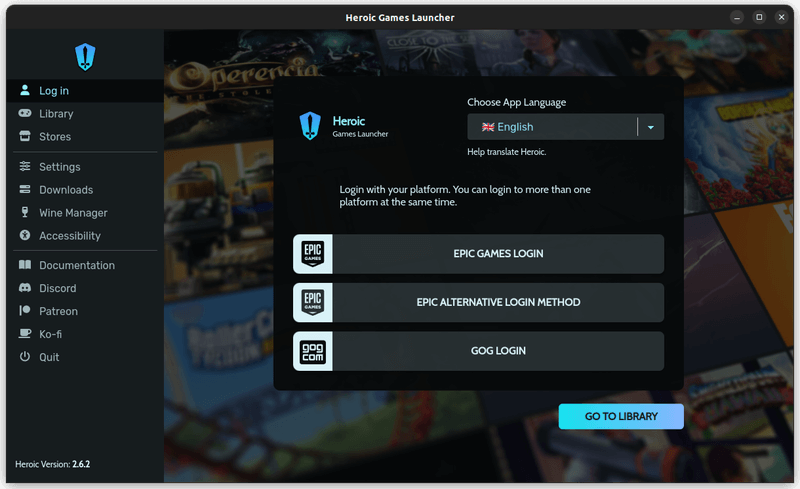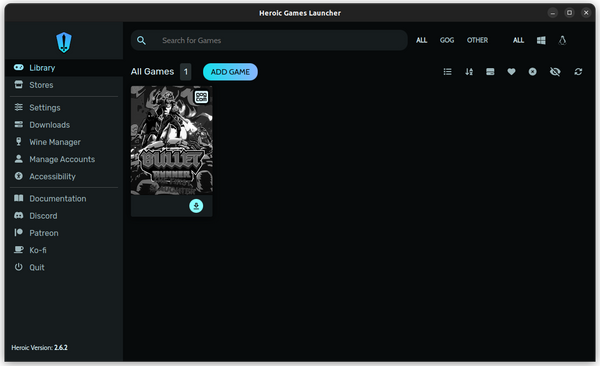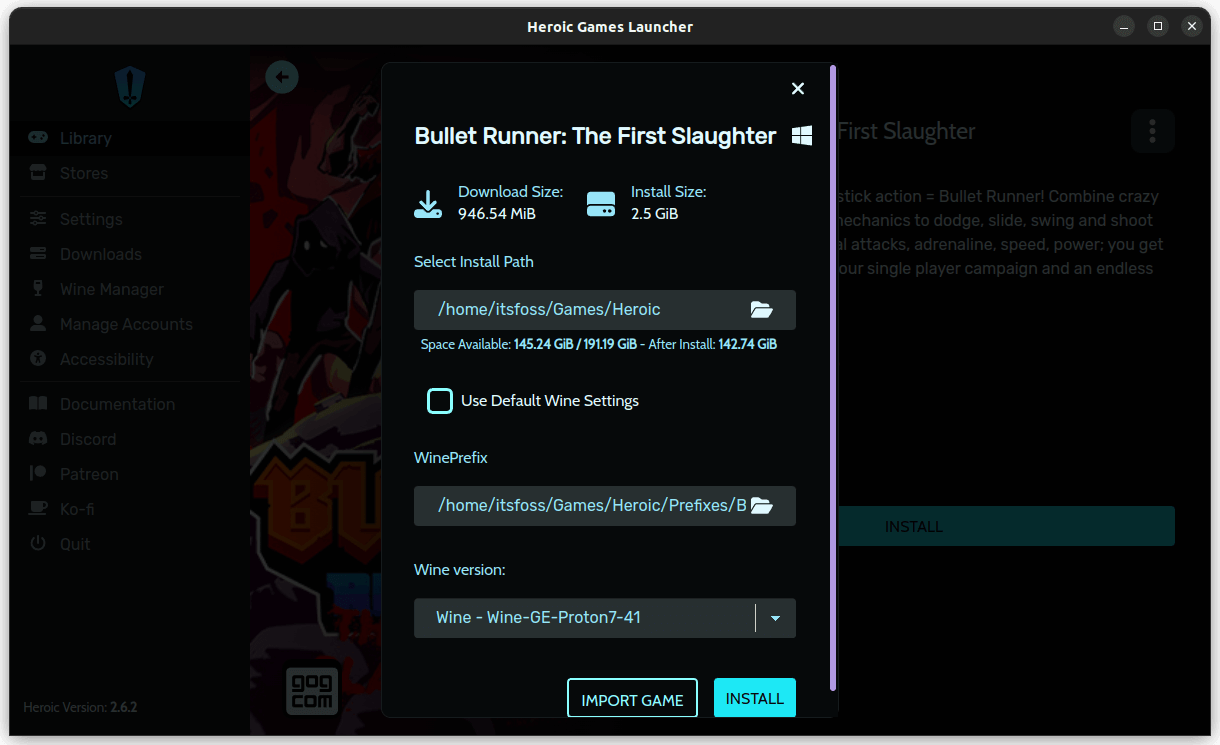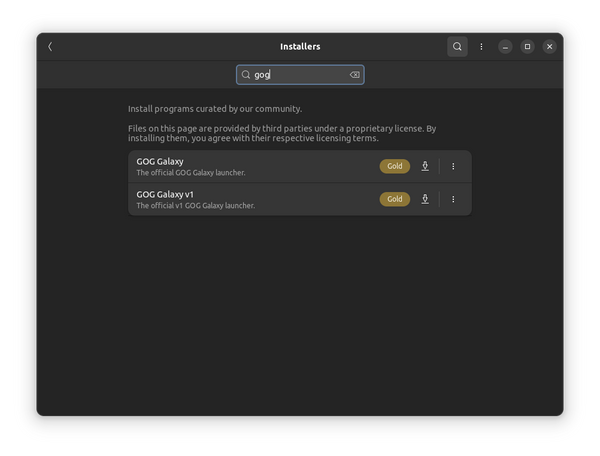- How can I install Windows software or games?
- Detailed answer and solutions
- Running .exe files on Ubuntu with WINE
- Running Windows applications on Ubuntu with PlayOnLinux
- Commercial solutions
- A Quick Guide to Install and Play GOG Games on Linux
- 3 Ways to Install GOG Games on Linux
- Method 1. Install and Play GOG Games Using Lutris
- Method 2. Install and Play GOG Games on Linux Using Heroic Games Launcher
- Method 3: Install and Play GOG Games on Linux Using Bottles
- Wrapping Up
How can I install Windows software or games?
.exe files are not binary-compatible with Ubuntu. There are, however, compatibility layers for Linux, such as Wine , that are capable of running .exe.
Detailed answer and solutions
The underlying problem:
Ubuntu is a completely different system than MS Windows. Not only it looks differently, but it also uses different mechanisms for its core functions.
The problem with .exe files is that they are specific to Windows. No other system is capable of running them, because their contents are designed to work on a Microsoft’s system. Linux uses different standards, different concepts, and therefore Ubuntu applications need to be adapted to them to work correctly.
If you have just migrated from Windows and are doing your baby steps with Ubuntu, you may be indeed surprised that .exe files fail to run. There may be different symptoms, either an error message may appear, or there may be no effect at all when double-clicking an .exe. This all happens, because Ubuntu has no idea what should it do to run that file. Ubuntu is not knowledgeable about how MS Windows works «behind the curtain», and therefore it can’t execute the code that’s within them. In technical jargon, one says that Windows and Linux executables are not binary-compatible.
Looking for alternatives
The first thing you should do is to realise that most likely you do not want to run that .exe file. Most Windows applications you are used to have their Ubuntu alternatives in Ubuntu Software Center.
Therefore the very first step when you try to run an .exe file is to check whether there is a Ubuntu version of the same application (like Firefox — it has both a Windows and Ubuntu edition), or a close alternative, which is not the same app, but does 99% the same stuff. For example, if you want to compose a document, instead of MS Office you will want to use LibreOffice.
How can I find an alternative?
- Search Ubuntu Software Center.
- Launch the Ubuntu Software Center, type in the search box what kind of application you are looking for. For example, typing in «photoshop» finds The GIMP, which is a great advanced image editing tool, and is a great substitute for Adobe Photoshop.
- Many Windows applications are also available for Ubuntu, and have their identical version in Ubuntu Software Center, which is the preferred way of installing software in Ubuntu.
- Search Ask Ubuntu (this very site).
- There are many questions here that explain what applications can be used as substitutes. Also, do not forget to ask a question if you need software-recommendation.
- This Ubuntu Help page contains great tips when seeking for alternatives.
- http://ubuntuguide.org/wiki/Alternatives
- http://alternativeto.net/
Okay, but not all applications have alternatives. There are a number of cases where you will want to run the .exe program anyway. Examples include:
- You are trying to run an application of which alternative makes no sense. In case of most video games you will want to run them and not an alternative.
- You may want to run the original application instead of an alternative, because the alternative is not good enough. For example, many people consider Photoshop to be a much better editor than The GIMP.
- This is a very Windows-specific program, that makes little sense on Linux.
Luckily, you can get .exe files to run on Ubuntu.
Running .exe files on Ubuntu with WINE
What is Wine? Well, technically it’s a compatibility layer. What it means is that it provides an environment similar to Windows to any .exe application you try to run. Therefore, with WINE .exe files will run on Ubuntu.
WINE is not installed by default. You can get it either by:
- Searching for «wine» in Ubuntu Software Center.
- Running the command: sudo apt-get install wine .
Details on installing WINE can be found in this question.
Okay, so I installed WINE. Now what?
Proceed to launching your .exe file! Double-click it, and with a bit of luck everything will seem like on Windows. Voilà!
WARNING: Not all applications will behave correctly when run with WINE. WINE is by no means perfect, and because it pretends to be a Windows environment instead of actually being a real one, some applications may malfunction. Common problems may include incorrectly displayed fields, fullscreen issues with video games, copy-protection problems. Some of them can be solved with litte hassle, make sure to check the WINE application database and use google to find hints in case your .exe does not work correctly.
Running Windows applications on Ubuntu with PlayOnLinux
There is another tool you may like which aids you in running Windows applications.
It’s called PlayOnLinux (website) and it supports quite a wide range of software (browse).
What it does is it runs a specific version of Wine which is known to work best with the application you are willing to run. It also installs additional paths to provide maximum compatibility with Ubuntu. But you don’t need to know about that; everything is done automatically.
Because of that, PlayOnLinux tends to provide the best results in case of running a widely known piece of software, including many video games.
Installing PlayOnLinux:
Using PlayOnLinux:
Instead of double-clicking the .exe (which launches it with WINE), run PlayOnLinux application. Select «Install» button on the toolbar, and choose what application you wish to install. PlayOnLinux will guide you through the installation process (of course you will need installation media).
Once it’s done, your installed application will be displayed in PlayOnLinux main window. Double click to launch it!
Commercial solutions
If you are not satisfied with WINE, there are some commercial softwares that runs Windows applications on Linux. One of the most well-known is CrossOver. In some cases it has significantly better results, yet it is not available for free.
A Quick Guide to Install and Play GOG Games on Linux
Gaming on Linux is no longer a problem. You can play plenty of AAA titles, indie games, and Windows-exclusive games on Linux. Several games from GOG, Steam, Epic Games, Origin, and Ubisoft Connect should work flawlessly. Unfortunately, GOG does not offer a client for Linux that you can use. So, in this guide, I will be focusing on installing and playing GOG games on Linux. If you have been following us, you may have come across on our ultimate guide to the Epic Games Store on Linux. It is more or less the same thing, but for a different store.
GOG.com is popular for offering DRM-free games. Furthermore, if you make a purchase on GOG, usually, the developer gets a good cut of it compared to other stores.
3 Ways to Install GOG Games on Linux
- Lutris
- Heroic Games Launcher
- Bottles
I found Lutris to be the easiest, and quickest to be able to run a Windows-exclusive GOG game on Linux. So, let me start with it.
Method 1. Install and Play GOG Games Using Lutris
1. To get started, you need to install Lutris on Linux.
You can install it using Flathub, PPA for Ubuntu-based distros, DEB package or from the software center of distros like Pop!_OS, Solus.
Head to its official download page and install Lutris.
2. Once you are done installing Lutris, launch it and click on “GOG” among the sources listed on its left sidebar, as shown in the image:
Do you see a user avatar icon, right next to it? Click on it to log in to your GOG account.
You can access the library of games associated with your account after signing in through Lutris’ native user interface.
3. Pick any game you want, and click on it to find «Install» button.
As you proceed, Lutris will prompt you to install Wine, which would enable you to run the Windows game on Linux.
(Optional) You can separately install Wine under the «Runners» menu, and have multiple versions of it ready before installing the game if you prefer.
4. But, if you do not want any hassle, just go with the installation process, and it will automatically install Wine and then prompt you to download the game
5. Continue with the process, and it will set up the installer for you and launch it.
Now, you have to follow the on-screen instructions for any game you want to install and then complete it.
Not every game will work seamlessly. For some, you may have to install it using a specific Wine version and some may not work at all. So, you should do some research on the particular game running on Linux before trying to install it via GOG.
It is done! The game should launch right after successful setup.
Method 2. Install and Play GOG Games on Linux Using Heroic Games Launcher
Heroic Games Launcher is a nice option with several features to run GOG games on Linux.
You can use an AppImage file available, or install its Flatpak via Flathub or get RPM/DEB packages from its GitHub.
You get similar functionalities but unlike Lutris, but you need to first install Wine manually using its Wine Manager. Heroic Games Launcher does not automatically install Wine for you. It will download the game for you, even if you do not have Wine installed.
It can be confusing for new users. But, if you have a bit of experience and want to choose the Wine/Proton version, you can head to its Wine Manager and preferably download the latest available version to get started.
No additional fiddling, just click on the download icon as shown in the screenshot above, and it will automatically install it.
Once done with it, here are the steps to install a GOG game using Heroic:
1. Log in to your GOG account. You can find the GOG menu right after you launch it and head to the Login section.
2. After logging in, head to the Library to find the games you have.
3. Click on the download icon to proceed. Now, you should get a prompt to decide the installation path, Wine version, and a couple of other options.
You can select «Use Default Wine Settings» if you want to automatically select the Wine version you have installed.
Or, you can use the drop-down arrow to pick among the Wine/Proton version available on your system.
For the ease of use, you can go with the default settings. And, if the game fails to work, you can go to its settings later and try other Wine versions.
4. Wait for the download to complete and then launch/run the game.
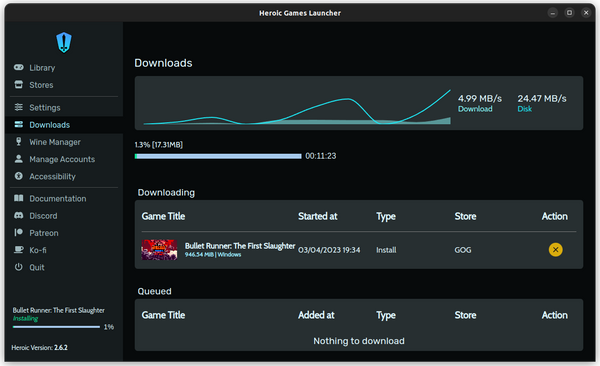
Method 3: Install and Play GOG Games on Linux Using Bottles
Bottles is an impressive platform. However, it does not let you install games through it.
This is not a recommended method. But, if you want to try the GOG Galaxy game client on Linux, Bottles is the way to go.
Instead, it will help you install the GOG client (which you find for Windows) and make it work on Linux. Bottles is one of the best ways to install a Windows program on Linux.
It is recommended to install Bottles as Flatpak, at the time of writing this. So, to get started, you need to get it installed from Flathub. Additionally, you can explore other download options, if available.
Once you get it installed, you have to create a new Bottle for Gaming. And, inside it, you will have to search for GOG Galaxy v1 or legacy and install the program to use GOG on Linux.
In my tests, GOG Galaxy client did not launch. And, when it did, it was too slow/unresponsive. But, at least, it is something you can explore when nothing else works for you. It may or may not work, of course.
If this is something that interests you, feel free to give it a try.
Wrapping Up
The installers or gaming clients on Linux are making things convenient every day.
For some games, it can end up as a one-click installation experience, while for others, it might need a little tweaking.
If you struggle with it, feel free to join our It’s FOSS forums for help. And, if you are new to the gaming scene on Linux, I suggest you read our guide on it:
There is also a handy utility called GameHub that can be utilized for keeping games from different platforms in one UI.
And of course, GOG is not the only place for getting Linux games.
